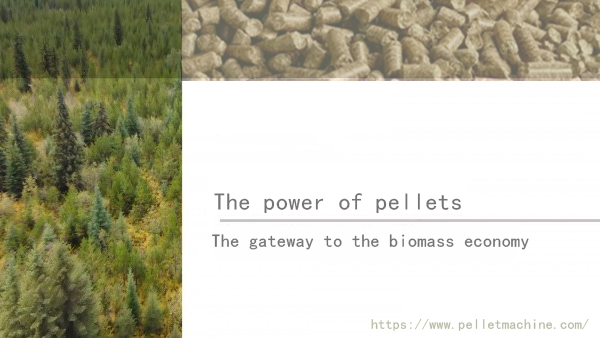
Innovation in the Bioeconomy is one of five new videos in the series The Power of Pellets, produced by the Wood Pellet Association of Canada (WPAC) with support from Forestry Innovation Investments. According to respected researchers and professionals, the global potential of biomass in the transition to a low-carbon, clean and renewable world is virtually limitless.
Dr Fahimeh Yazdan Panah, Director of Research and Technology Development at WPAC explained: "The bioeconomy is really about the sustainable production of renewable resources and the conversion of these renewable resources into higher value products such as food, bioenergy and other bio-based products. Materials. These products offer a possibility not only to meet greenhouse gas emissions targets, but also to open doors for new products." For the past 15 years, the Biomass and Bioenergy Research Group at the University of British Columbia, in collaboration with WPAC, has been conducting research and developing technologies to store, process and convert lignocellulosic biomass into higher value products, not only using for heat and power generation, but also for biochemistry, biomaterials and biofuels. "If you look around your home, everything that is made of plastic today is probably made of wood and looks exactly the same," emphasized Yazdan Panah. Steve Kozuki, executive director of the British Columbia Forest Enhancement Association, a registered professional forest ranger, said one of the things that the wood pellet industry is proud of is that it is an important contributor to the participation of the forest economy in British Columbia, especially the forest bioeconomy. catalyst. "The basis for allowing this to happen is that we have strong particle zones in British Columbia." "Wood pellets play a key role in reducing greenhouse gas emissions," said study leader Dr Shahab Sokhansanj of the UBC Substances and Bioenergy Group. "Under the Paris Agreement, we do need to consider the contribution of solid biofuels and alternatives to fossil fuels," said Yazdan Panah, who envisions the development of Bioenergy Carbon Capture and Storage (BECCS) in the country. "If Canada is really serious about its greenhouse gas emissions targets, we will start using pellets as a way to capture greenhouse gas emissions at the source, transport them and bury them in the ground." "The opportunities for using wood pellets at home and around the world are essentially limitless," concluded Dr. Gary Bull, a professor in the Department of Forest Resource Management at the University of British Columbia.




